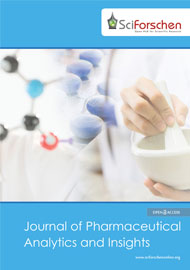
Professor of Chemistry and Biochemistry
Laurentian University
Ontario, Canada
Phone: 1-705-675-1151 ext. 2120, 2129
E-mail: aomri@laurentian.ca, aomri@nosm.ca
Education
- PhD, Université de Montréal - 1996
Profile
Dr. Abdel Omri obtained his PhD from Université de Montréal in 1996. After completing postdoctoral fellowships at McGill University and the University of Toronto (1996-1998), he spent more than 2 years as Research associate at NRC (institute of biological sciences in Ottawa) from 1998 to 2000. Dr Omri is currently Full Professor in the Department of Chemistry and Biochemistry with a cross appointment to the Department of Biology, the Biomolecular Sciences PhD Programme, School of Rural and Northern Health PhD Programme. Dr. Omri’s research interests are focused on Lipid-based drug and vaccine delivery systems. His laboratory employs a multi-disciplinary approach to addressing the antimicrobial resistance to gram negative bacteria in cystic fibrosis patients and in medical devices implants. Dr. Omri is also involved in the education of undergraduate and graduate students through the coordination of several calendar courses in biochemistry, pharmacology and toxicology and pharmaceutical technology. In addition to research, Dr. Omri is actively involved in the research training of both undergraduate and graduate students. Dr. Omri has served in administrative capacities in several international scientific societies. He has published over 50 peer-reviewed research articles over his career on various aspects of drug delivery and targeting in addition to several published book chapters and books (2). He has served on a number of Editorial Boards and Granting Agencies in Canada and abroad. Dr. Omri has 2 patents.
Research Interest
- Liposomal delivery of antisense oligonucleotides. Effect on P-glycoprotein function in multidrug resistant cells in vitro and in-vivo studies. Cationic liposome formulations are used to promote the penetration of antisense oligonucleotides into the cell membrane and protect them from enzymatic degradation (nucleases).
- Liposomal delivery of antimicrobial agents towards resistant bacterial pathogens: pulmonary and systemic infections. Construction of liposomes with high encapsulation efficiency, favorable antimicrobial release profile and enhanced bactericidal activity, to overcome the problem of bacterial resistance caused by low permeability of the bacterial cell envelope and by production of antimicrobial-inactivating enzymes.
- Liposomal formulations of drugs and vaccine for oral delivery. Liposomes are used to protect the encapsulated agents from the harsh gastrointestinal milieu (low pH, phospholipases, and bile salts) and to enhance their absorption to the systemic circulation and to increase the efficacy of these agents while minimizing their frequency of administration. Special liposomal formulation will be prepared, characterized and assayed for their efficacy in vitro and in animal models.
Professional Activities:
Teaching:
- CHMI 3226 FL Biochimie II – Biochimie métabolique
- CHMI 3226 EL Biochemistry II – Metabolic Biochemistry
- CHMI 3217 FL Biochimie des acides nucléiques
- CHMI 3257 EL Principles of Pharmcology
- CHMI 4287/5287 EL Biochemical Toxicology
Courses taught:
- CHMI 2227 EL Biochemistry I- Structural Biochemistry
- CHMI 2227 FL Biochimie I- Biochimie structurale
- CHMI 3217 EL Biochemistry of Nucleic Acids
- CHMI 3217 FL Biochimie des acides nucléiques
- CHMI 3226 FL Biochimie II – Biochimie métabolique
- CHMI 3226 EL Biochemistry II – Metabolic Biochemistry
- CHMI 3257 EL Principles of Pharmcology
- CHMI 4216 EL Advanced Biochemistry (Molecular biology)
- CHMI 4216 FL Biochmie avancée (Biologie moléculaire)
- CHMI 4236 FL Biotechnologie pharmaceutique
- CHMI 4287/5287 EL Biochemical Toxicology
- CHMI 4297 EL Biochemistry-immune system
- CHMI 4615 EL Seminars (4th year thesis coordinator)
- CHMI 4615 FL Seminars (4th year thesis coordinator)-
- CHMI 5606 EL Seminars (Master coordinator)
- CHMI 5606 FL Seminars (Master coordinator)
- BMOL 6106 EL Adv. Topics in Cell Regulation (PhD. course coordinator)
- MIDW 2406 EL Pharmacotherapy
- SFEM 2406 FL Pharmacologie & Thérapeutique
Honors and Awards
Publications
- Nasal and pulmonary vaccine delivery using particulate carriers Expert Opinion on Drug Delivery, vol. 12, no. 6, pp. 993–1008, 2015
- Mechanism of fibroblast inflammatory responses to Pseudomonas aeruginosa elastase Microbiology (United Kingdom), vol. 160, no. PART 3, pp. 547–555, 2014
- Fumarate metabolism and ATP production in Pseudomonas fluorescens exposed to nitrosative stress Antonie van Leeuwenhoek, International Journal of General and Molecular Microbiology, vol. 106, no. 3, pp. 431–438, 2014
- Liposomal antibiotics for the treatment of infectious diseases Expert Opinion on Drug Delivery, vol. 10, no. 11, pp. 1515–1532, 2013
- Hydrogen peroxide stress provokes a metabolic reprogramming in Pseudomonas fluorescens: Enhanced production of pyruvate Journal of Biotechnology, vol. 167, no. 3, pp. 309–315, 2013
- Co-administration of aqueous ginseng extract with tobramycin stimulates the pro-inflammatory response and promotes the killing of Pseudomonas aeruginosa in the lungs of infected rats Canadian Journal of Physiology and Pharmacology, vol. 91, no. 11, pp. 935–940, 2013
- Efficacy and safety of liposomal clarithromycin and its effect on Pseudomonas aeruginosa virulence factors Antimicrobial Agents and Chemotherapy, vol. 57, no. 6, pp. 2694–2704, 2013
- Therapeutic effect of liposomal-N-acetylcysteine against acetaminophen-induced hepatotoxicity Journal of Drug Targeting, vol. 21, no. 5, pp. 466–473, 2013
- Efficacy of liposomal bismuth-ethanedithiol-loaded tobramycin after intratracheal administration in rats with pulmonary Pseudomonas aeruginosa infection Antimicrobial Agents and Chemotherapy, vol. 57, no. 1, pp. 569–578, 2013
- Liposomal encapsulation of vancomycin improves killing of methicillin-resistant Staphylococcus aureus in a murine infection model Journal of Antimicrobial Chemotherapy, vol. 67, no. 9, pp. 2191–2194, 2012
- Acute toxicity study of liposomal antioxidant formulations containing N-acetylcysteine, α-tocopherol, and γ tocopherol in rats Journal of Liposome Research, vol. 22, no. 2, pp. 158–167, 2012
- Treatment of ricin A-chain-induced hepatotoxicity with liposome- encapsulated N-acetylcysteine Journal of Drug Targeting, vol. 19, no. 9, pp. 821–829, 2011
- Bismuth-ethanedithiol incorporated in a liposome-loaded tobramycin formulation modulates the alginate levels in mucoid Pseudomonas aeruginosa Journal of Pharmacy and Pharmacology, vol. 63, no. 8, pp. 999–1007, 2011
- Ginseng aqueous extract attenuates the production of virulence factors, stimulates twitching and adhesion, and eradicates biofilms of Pseudomonas aeruginosa. Canadian journal of physiology and pharmacology, vol. 89, no. 6, pp. 419–427, 2011

